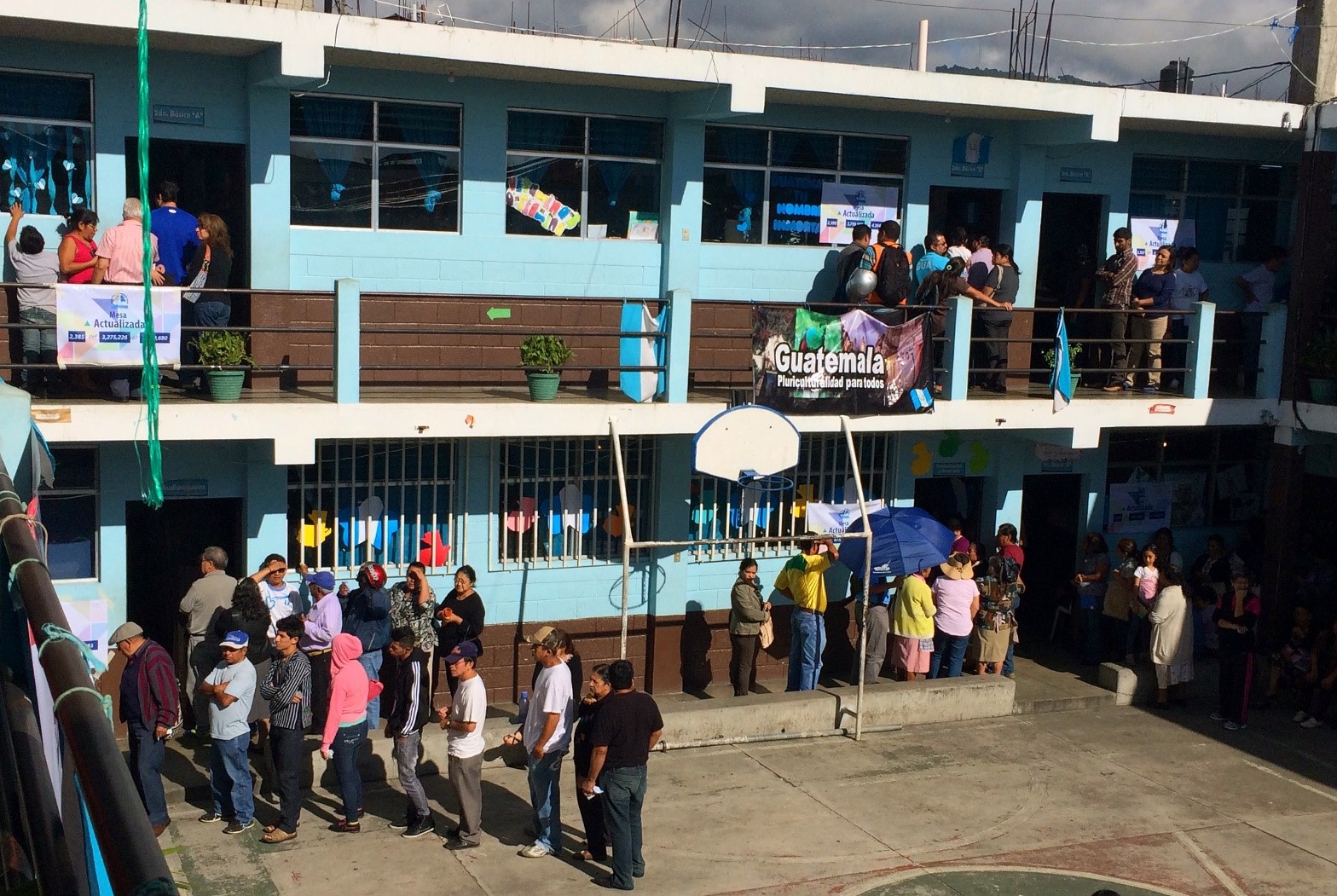
On June 16, Guatemalan citizens will vote for president, 160 congressional representatives and 340 mayors. While candidates for all races filed their papers months ago, many of them are still pending review. More specifically, who can run still hasn’t been precisely determined because electoral and judicial authorities are still examining accusations of wrongdoing presented against many of the candidates. To be sure, there are plenty of people campaigning—but how much choice voters will have come Election Day is still in question. Trust in the electoral system hangs in the balance.
The Candidates
When the campaign period began on March 18, there were 24 registered presidential candidates. The list is now down to 19. Among the casualties were Thelma Aldana, Guatemala’s popular and successful former attorney general who played a prominent role in prosecuting former president Otto Pérez Molina and his vice president Roxana Baldetti for involvement in a customs corruption scheme. March 16, the day before Aldana registered, a judge issued an arrest warrant accusing her of embezzling and falsifying public records. The Supreme Electoral Tribunal (TSE) invalidated her candidacy, but her party appealed. During the review, one of the electoral magistrates reported intense pressure from far-right political groups to invalidate Aldana’s candidacy. She was ultimately disqualified on May 15.
In mid-April, U.S. law enforcement took presidential candidate Mario Estrada out of the race. He was arrested in Miami, Florida on charges of soliciting campaign funds from Mexico’s Sinaloa drug cartel in exchange for opening air and seaports to facilitate illicit shipments. The U.S. attorney’s statement alleged he was also plotting to assassinate political rivals.
In May, Guatemala’s Constitutional Court ruled that former Congresswoman Zury Ríos could not run on constitutional grounds as the daughter of a former dictator General Efraín Ríos Montt. The constitution prohibits blood relatives of those who came to power by coup from running for president. Nevertheless, she was able to compete in the 2015 presidential contest because of conflicting court interpretations.
On June 4, the Electoral Tribunal finally disqualified candidate Mauricio Radford because of unresolved criminal charges against him dating back to 2009. His candidacy had been under review since March.
The same day, Edwin Escobar, the current mayor of the capital suburb of Villanueva, had his presidential run invalidated as a result of a three-year-old accusation against his municipal administration over financial irregularities that had yet to be settled in court.
That leaves former First Lady Sandra Torres and 18 other lesser-known candidates to compete for votes on June 16. Torres herself has an unresolved case of illicit campaign financing dating from her 2015 presidential bid, among other accusations. However, the Constitutional Court has so far upheld her immunity from prosecution as a candidate.
How did this happen?
The slow wheels of justice are partly at fault for allowing candidates to register that don’t meet legal requirements. The Electoral Tribunal, the Civil Registry, the Constitutional Court and even the International Commission Against Impunity in Guatemala (CICIG) took inordinate amounts of time to proceed on cases affecting potential candidates, dribbling out decisions such that it looked like a hidden hand was trying to shape the people’s choice, not voters themselves. Reforms are needed to ensure speedier justice for legitimate charges and to weed out frivolous ones, as well as craft candidate standards less subject to interpretation.
Still corruption looms even larger, as suggested by the fact that so many presidential hopefuls have been disqualified for it and there are allegations against some 150 congressional candidates. Besides enabling organized crime and contributing to out-migration, corruption takes attention away from other important quality of life issues such as improving Guatemala’s public education system, reforming public health, bolstering the pension system and developing infrastructure in rural areas.
The Implications
The vote is set for June 16 and a second round, if needed, on August 11. For now, Torres leads in polls at around 20 percent, benefitting somewhat from name recognition. Voters haven’t had as much time to investigate the other candidates—suggesting an unpredictable outcome and the likelihood of a runoff.
Confidence in the electoral system and the political system is at stake. If citizens believe that their range of choices is being gamed by hidden interests, voter participation will suffer. If they come to assume that all who aspire to public office are crooked, the stage is set for an authoritarian demagogue to rise up as a “savior” —likely producing the opposite of what voters intended. Overall, democracies are better off if justice and politics are kept separate, and electoral standards efficiently applied.
Top